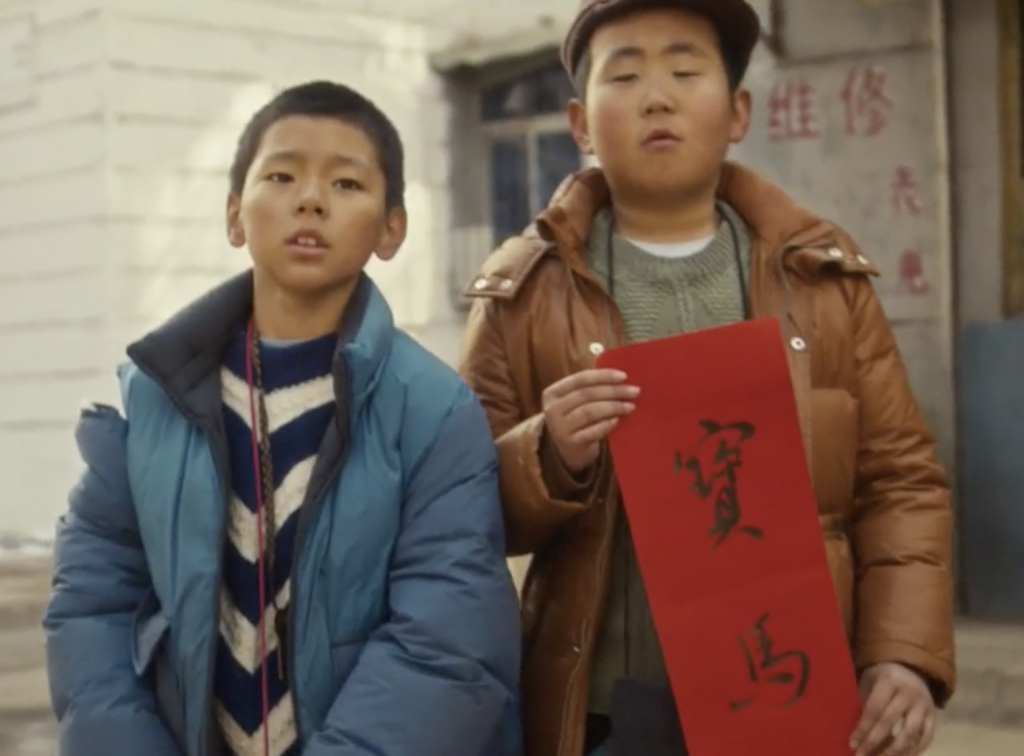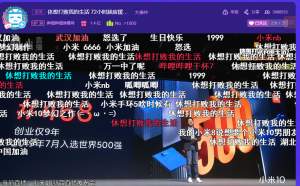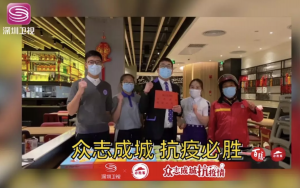
Finding a new Chinese name for BMW in Ning Hao’s brand film
The relationship between auto brands and film has long been a close one. In major studio productions, cars have been among the most prominent types of product placements, especially in series such as James Bond (Aston Martin), Iron Man (Audi) and the Furious films (Dodge Charger). More recently, auto brands have also been at the forefront of producing branded films and sponsoring industry events such as film festivals.
For this year’s Lunar New Year holiday in China, a number of high-end auto brands engaged some of the country’s leading directors to create quality short films aimed at celebrating the holiday while also standing on their own merits for their entertainment value. The films illustrate various strategies that brands can employ to create compelling content that can draw large audiences.
Go Long
A standout among this year’s films Ning Hao’s “Bayier’s Spring Festival” (巴依尔的春节), which reimagines BMW’s Chinese name change to Baoma (宝马, “precious horse”) in the early 1990s from a young boy’s perspective, bringing his broken family back together again in the process. Ning said he incorporated his own memories of childhood jokes about what the brand’s initials could stand for in Mandarin, such as “don’t touch me” (别摸我 bie mo wo).
At 22 minutes, the film is on the longer side, allowing the scenes to unfold at a leisurely pace. On the eve of the Lunar New Year, a father arrives behind the wheel of his boss’s new foreign car to pick up his son from his ex-wife’s home. She is bitter as the boy departs, impressed by the BMW, which was then known under the name Bayier in Chinese. The boy is proud of his connection to the powerful vehicle and wants to adopt the name as his own, but is mocked by peers because of his parents’ divorce. He sets off to find another name for the car, finally writing “ba ma wo” (father, mother, me) around the BMW emblem on the hood, which spurs his father to seek a reconciliation with the boy’s mother.
The movie has been among the most watched of the season on Weibo, with nearly 67 million views to date, underscoring how an engaging and well-executed story can appeal to a broad audience, even with a substantially longer running time than most brand films.
Short Video Appeal
General Motors’ Buick brand has a reputation as an older driver’s car, but in China, the brand is seeking to appeal to a younger generation of auto buyers. One example of its youth-oriented marketing strategy is this recent series of vignettes highlighting personal connections, which were produced for vertical viewing by Zhang Yimou’s directing team.
The four films in the holiday series were released between January 21 and February 3. Unlike most films from auto brands, Buick’s vehicles barely register as part of the film, appearing only briefly in the background of two and omitted entirely from the other two, while the brand’s name appears only during the title credits and at the end. The connection to the holiday is also made subtly in each film: one features passengers on a train, another shows a woman decorating her shop for the holiday.
Instead, each film focuses strongly on the visual capabilities of the vertical format, with the lack of spoken language and use of vertical text to express protagonists thoughts and feelings intensifying viewer’s attention to the on-screen images.
Studio Picture Tie-In
Cadillac’s seven-minute film “Unexpected” (想不到) is closely tied to the plot of the sports drama “Leap” (夺冠), one of the major Spring Festival movies for 2020. The American auto brand’s film features the much-decorated volleyball star and coach Lang Ping and her daughter Lydia playing themselves in the recent past, with a story that looks at the challenges of the mother-daughter relationship over decades.
In the studio film, Bai plays her own mother as a young woman (Gong Li plays her as an older adult) and Cadillac’s film refers to Bai’s role directly when she tells her mother that she has been tapped for the role. Although the Spring Festival is not an explicit part of the story, themes of separation and reunion are prominent.
However, Cadillac’s film highlights one of the risks of tying in to film IP, and that is that studio films may be subject to delayed or canceled releases due to unforeseen circumstances. In the case of “Leap,” its premiere (along with all other new releases) has postponed indefinitely amid the coronavirus outbreak, and Cadillac’s film
has likely had less of an impact as a result.
Celebrity Ambassadors
Marketing through celebrities is a tried and tested method of appealing to young Chinese consumers, who propel what is known as the “fan economy” in support of their favorite stars. Along with a top-notch filmmaker and a compelling story, Mercedes-Benz drew on the considerable star power of actor Yang Yang for its Spring Festival film, “I’m Home” (归心). Last summer, Yang played the lead role on Tencent Video’s hit esports drama “The King’s Avatar, and his popularity has soared since then.
Directed by Ding Yuchen, who was behind one of last year’s most acclaimed brand films — “The Last Transfer of Western Tang Empire” (大唐漠北的最后一次转账) for China UnionPay. “I’m Home” recounts a Spring Festival visit to an older man’s home by three “stranger children” who show up at his door. As they explain their ties to the man’s only child, a firefighter who perished on the job, they take turns helping to care for him.
The film has been viewed nearly 12 million times on Weibo, thanks in large part to promotion by Yang’s fans, and the response to the story has been overwhelmingly positive.





